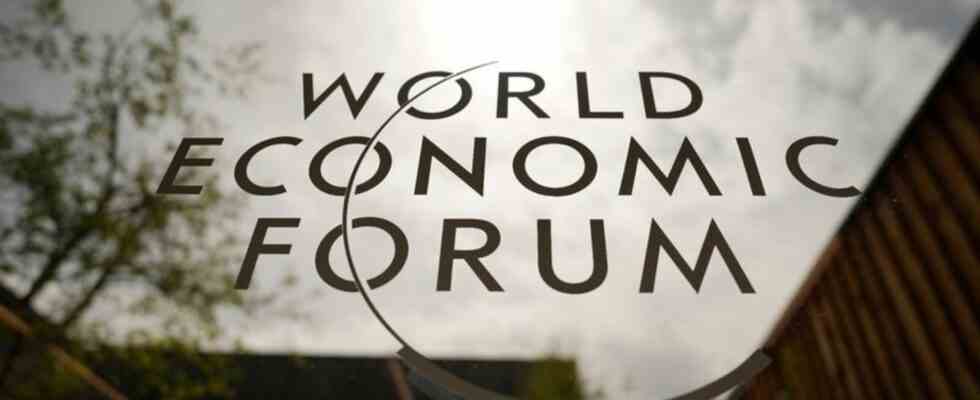davos
World Economic Forum: Oxfam calls for more taxes on the rich
The World Economic Forum meeting will take place in Davos on May 22-26, 2022. Photo: Markus Schreiber/AP/dpa
© dpa-infocom GmbH
Millions of people are at risk of sliding into extreme poverty because of the parallel global crises. Before the big meeting of business and politics in Davos, there are calls for political action.
According to the Oxfam organization, the richest in the world have become even richer since the beginning of the corona pandemic. The wealth of billionaires has grown by 42 percent.
At the same time, more than a quarter billion people worldwide are at risk of slipping into extreme poverty this year. The organization came to this conclusion in its report on those who profited from the global crises, which it presented at the annual conference of the World Economic Forum (WEF) in Davos.
From Monday, almost 2,500 participants from politics, business and society will meet in the Swiss Alpine town to discuss solutions to international problems. It is always about the balance between economic profit and social justice. The motto of this year’s conference is “History at a turning point: government policies and business strategies”.
Oxfam points to growing inequality
The emergency aid and development organization Oxfam called for greater taxation of companies and very high assets in view of growing inequality. “It is unacceptable that corporations and the billionaires behind them are making record profits while millions of people are skipping meals, turning off the heat, falling behind on their bills and wondering what to do next to survive », said Manuel Schmitt, consultant for social inequality at Oxfam Germany.
Governments urgently need to take countermeasures and hold corporations and the super-rich to account. Wealth tax must be reintroduced in Germany. In addition, a one-off tax on very high assets and an excess profit tax for corporations are announced.
Pandemic fueled poverty
According to Oxfam, the corona pandemic and rising energy and food prices have recently fueled poverty and social inequality. The number of billionaires has grown by more than 570 to 2,668 since 2020. Together they were worth $12.7 trillion. During the pandemic alone, it grew by 42 percent and now corresponds to 13.9 percent of global economic output. Pharmaceutical companies alone made a profit of over $1,000 a second on vaccines and charged governments up to 24 times the manufacturing price.
At the same time, around 260 million people are at risk of slipping into poverty due to increasing inequality and rising food prices. Last March saw the biggest jump in food prices since United Nations records began in 1990.
Inequality between countries is also increasing again. More than every second low-income country will soon no longer be able to repay its debts. “Right now, low-income countries are suffocating under their debt burden, and inequality and poverty are exploding around the world,” Schmitt said.
Consequences of the Ukraine war are also an issue
The rising prices and the debt problem are currently being fueled by the Russian war in Ukraine. The consequences of the war should also have a strong impact on the World Economic Forum – the third global crisis alongside the corona pandemic and climate change. Among other things, the effects on supply chains, energy supply and food security will be discussed.
The opening speech in Davos will be held by Ukrainian President Volodymyr Zelenskyj on Monday, who will be connected digitally. Later, Kiev mayor Vitali Klitschko and his brother Wladimir are guests. Economics Minister Robert Habeck will speak in a panel discussion this morning about how Germany wants to become less dependent on Russian energy.
Habeck calls for “more and better cooperation”
“The World Economic Forum in Davos is considered a symbol of unbridled globalization, which fuels the exploitation of people and resources, prepares the ground for financial crises and exacerbates social inequality,” said Habeck in advance. Despite all the criticism, it also offers the framework for important debates. World trade has come to a standstill, supply chains have broken down, and there is a risk of a hunger crisis because Russia is blocking wheat deliveries from Ukraine. Against this background, it would be wrong to say goodbye to the idea of globalization. “More and better cooperation makes us more resilient and protects us,” said Habeck.
Chancellor Olaf Scholz (SPD) is expected in Davos on Thursday. So far, he is the only G7 head of government who has agreed to attend. Also announced are NATO Secretary General Jens Stoltenberg, EU Commission President Ursula von der Leyen and ECB President Christine Lagarde.
Russia is not represented
Because of the war, unlike usual, no Russian delegation will take part in the annual conference. Numerous Ukrainian politicians and foundations are represented. Instead of the Russian House, there will be an exhibition that, according to the Victor Pinchuk Foundation, shows Russian war crimes.
Traditionally, the meeting of the World Economic Forum actually takes place in mid-January, but it was postponed due to the corona pandemic. In January, the foundation brought managers together digitally instead. Last year, the World Economic Forum could only take place digitally.

